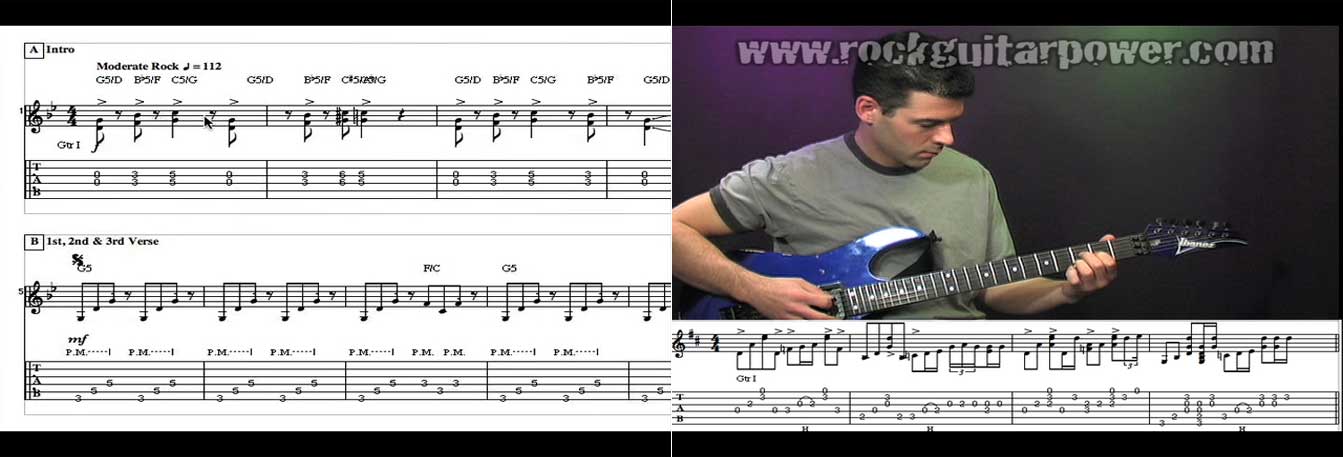Many beginning guitar players make the mistake of thinking that they have to learn dozens of complicated scales before they can start using them in their songs. Though it is undoubtedly important to have a basic understanding of which guitar scales should accompany which guitar chords, the process is really quite painless. With a strong background in understanding chord progressions and how to choose which scale to use in each song, you can quickly progress to playing solos and improvising.
Essentially, the guitar chords you hear in songs will fall into one of two basic categories: simple or complex. Simple chords consist of two notes, and are often power chords. Powerful and popular, the two notes in the power chords are the root and the fifth. If basic guitar chords are what you want, then power chords will definitely deliver. The more complex guitar chords are played using three or more notes. They will most likely be major or minor chords, and you will probably want to play a more complex type of scale with these chords.
If you are facing a simple chord, such as a power chord, a pentatonic scale will sound best played over it. The pentatonic scale is also known as the king of rock guitar scales because it sounds great over almost all guitar chords. It is made up of five notes, unlike the more traditional major or minor scales, and should match as many of the notes in the power chord as possible. As for how to practice guitar scales, you just have to be careful to begin the scale with the same root note as the key signature of the song. For example, if your song's key signature is A Minor, start your scale on an A.
For the more complex chords, like the major or minor chords, you’ll need to play the full major and minor scales over them. These scales are made of a complete seven notes and will share more notes with the guitar chord. Major and minor guitar scales are also great because you can create really fluid lines with them. Of course, they will be trickier to use in rock music than the pentatonic scales, but they will give you more options for licks and melodies, and you can even mix in a minor pentatonic scale for more unique licks. If you do need to lower the difficulty of the music a bit, you can play only minor pentatonic scale instead.
One of my favorite things about guitar soloing and integrating strong scales into rock music is that once you have done all the work of figuring out the key signature and deciding which rock guitar scale to use, you can sit back and enjoy playing the guitar. For the majority of tunes, there will no need for you to change your guitar scales or your key during the song, unless you want to increase its difficulty. However, you will need to be careful around the most complicated music types, like jazz, where the chords change dramatically and often. For jazz guitar music, you will need to switch scales when the chords change.
If you’re having trouble deciding between a major or minor pentatonic scale, I would say to play it safe and use the minor pentatonic scale. If you are playing rock guitar music, most of the chord progressions you will find are in the minor key signatures, which will make your minor pentatonic scales sound amazing. For those who really want to play in the major pentatonic scale, this is definitely possible, as long as you play it in the relative major key. We’ll discuss relative major keys in future articles.
For even more tips on how to practice guitar scales, visit the Rock Guitar Power website and click on the Members’ Section. You will find many backing tracks on this website in various styles and keys to help you become a well-rounded rock guitar player. There are even some great examples on the Rock Guitar Power website to get you started on working with these tracks. With some guitar scales practice, you will find your solo, lead playing, and improvisation skills advancing rapidly!





No comments:
Post a Comment